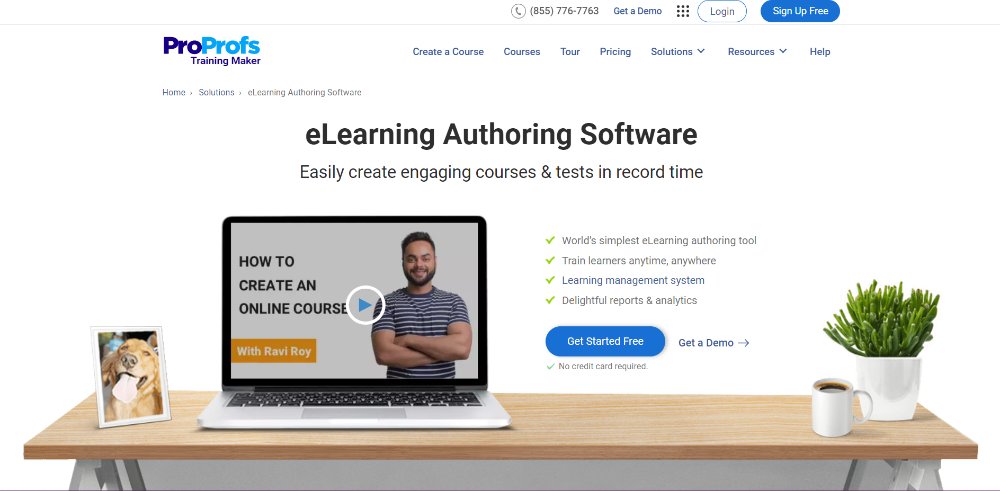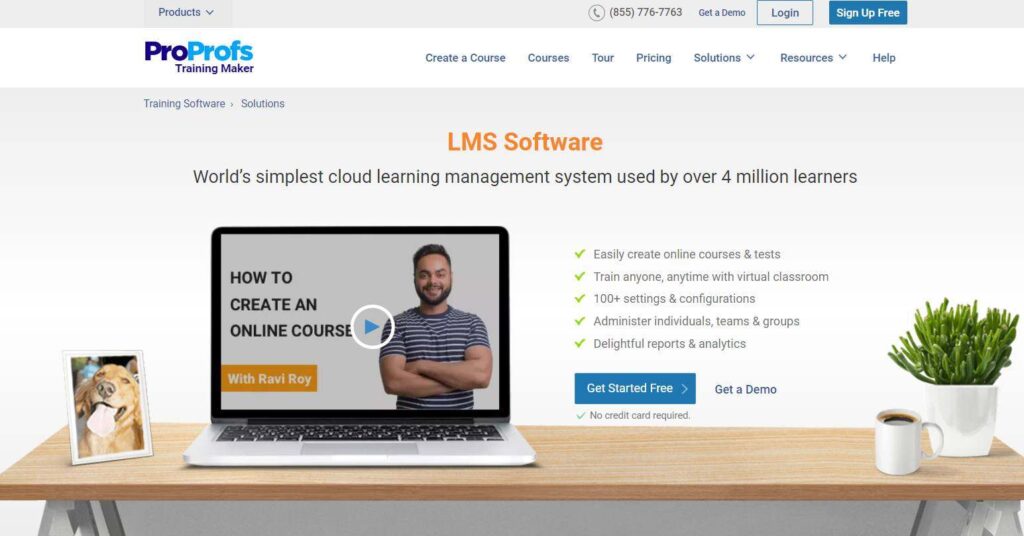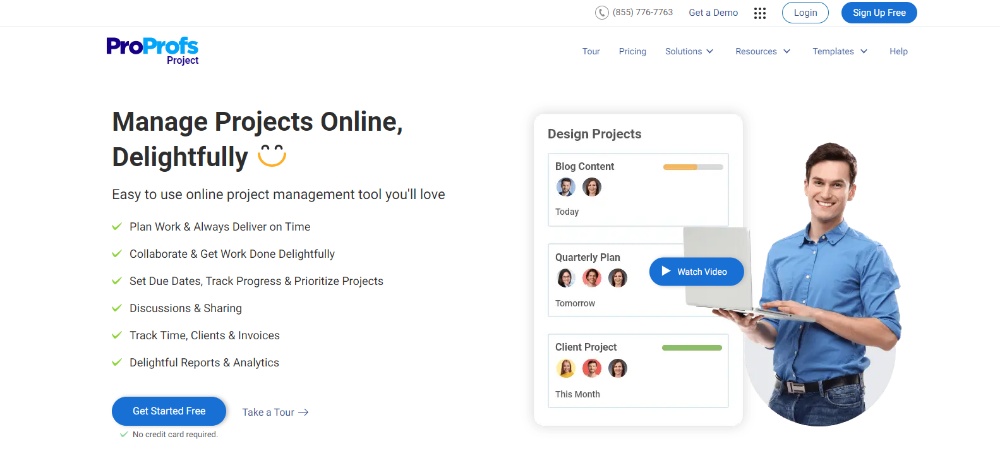
Skills and tools for trainers have undergone a sea change in the last few years. In today’s tech-driven business world, corporate trainers are revisiting their current skills and the tools they use to train people.
This is to ensure that they can contribute fully to employees’ current and future training needs and meet business objectives while advancing their careers.
Also, with competition in the world of business intensifying everywhere, the need to drive employee performance takes center stage, and business owners can no longer remain indifferent to it.
This necessitates them to bring corporate trainers up to speed.
Only professional trainers who demonstrate the right skill sets and utilize powerful training tools to train a workforce can bring a business closer to the goal of employee productivity and business growth.
With that in mind, this blog post discusses 10 of the essential skills of a trainer and the tools they must have at their disposal.
So, fasten your seatbelts and discover them one after another.
10 Corporate Trainer Skills
The skills of a corporate trainer determine whether their learning programs will be a success or not. Due to this, acquiring the in-demand skills is a must for every trainer regardless of the audience type. Find out some of the top skills trainers need to exhibit in their profession.
1. Research Skills
Instructions in professional environments can never be a shot in the dark. As a corporate trainer, you need research to lay a solid foundation for what you will teach. It forms a key part of the training techniques for trainers.
That’s why it is essential to cultivate research skills that really work.
You should be able to find relevant and reliable content for learners.
Along with that, you should be able to build a knowledge base with well-researched, verified, and useful facts and stats that your learners can access anytime.
2. Communication Skills

As American preacher Nat Turner rightly said, good communication is the bridge between confusion and clarity.
It is one of the most important training skills for trainers.
Gathering knowledge is one thing, and communicating that knowledge to learners coherently is a totally different thing.
Whether explaining concepts, framing questions, or teaching how to start a presentation effectively, corporate trainers should be clear, persuasive, and authoritative in their communication.
3. Time Management Skills
These skills assume significance, especially when you are training on a large scale, employing various online courses for hundreds of learners.
With effective time management strategies, you would deliver training on time or as scheduled. After setting learning and development goals, corporate trainers should know with certainty how to achieve them over a preset time frame.
In addition, they should demonstrate the desired skills for prioritizing courses in a timeline according to learning paths.
4. Creativity
Creative people are highly sought in every business since innovation and productivity are interconnected.
Corporate trainers should think out of the box to provide a world-class learning experience. They should keep their minds flexible to accommodate the needs of modern-day learners.
One area where corporate trainers can exhibit their creativity is in the courses that they create for online training.
There is virtually no limit to how they can present the course content and strive for continuous improvement by adding interesting elements such as videos, graphics, quizzes, and more.
5. Organizational Skills
As the captain of the training ship, trainers are expected to be excellent organizers. They must be able to:
- plan ahead and structure training programs
- organize their training calendars
- set up a venue for training and put all the resources in place
- make efficient use of training facilities and resources
- manage their time
- finish sessions on time
- allow time for questions and discussions
These skills add efficiency to training and make the life of trainers less stressful.
6. Technology Skills
Corporate trainers must possess at least basic job-related technical skills. For example, they are supposed to know how to use a learning management system or LMS, a popular tool in all online training environments.
They should also know how to develop effective training materials using advanced content authoring tools.
If you’re a technical trainer, knowledge of modern workplace technology becomes all the more important.
7. Adaptability
Adaptability and flexibility go together and they are among the top corporate trainer skills.
Successful trainers are adaptable by nature. They are never rigid, which can otherwise kill their professional growth. They are always willing to adopt new learning materials and strategies to meet evolving learning needs.
Adaptable trainers always find new and engaging ways to communicate information and complex concepts.
Just like learners who need to adapt to new programs and new knowledge acquisition techniques, trainers should be equally adaptable to new teaching styles. They should never shy away from changes.
8. Product & Service Knowledge
Every business revolves around a product or service. To effectively train employees on these offerings, trainers should know the product and service inside out.
Excellent product and service knowledge in trainers translates into effective knowledge transfer and training success.
Like a sales professional, trainers should communicate what a product or service is all about, what values it adds to end-users, and how it differentiates from its competitors in the marketplace.
9. Collaborative Skills
The ability to collaborate with others, learn from each other, and work towards a common goal is invaluable in modern trainers. A one-man show in business is a myth. Trainers need a convoy of teams and departments to make every training program successful.
They need to discuss learning requirements with the management, HR, subject-matter experts, and learners. This input ensures that individual and organization’s needs are considered while developing a training plan and during decision-making.
10. Life-Long Learning
There is no end to what a corporate trainer can learn. Whether it is HR training or sales training, they should continuously update themselves on trends as these are fast-evolving fields.
To develop this skill, online instructors and trainers should cultivate an endless appetite for learning to expand their knowledge. Such enthusiasm for continuous learning inspires learners to do the same.
The relationship between a trainer and learner works the same way as that of a teacher and student.
To make sure students learn in the best possible way, teachers need to engage in self-study and develop a teaching plan, for example, for each day at school or college. The same is true of a corporate trainer.

Now that you know the essential skills of a good trainer, let’s now discuss a related topic – tools that they should use on their job.
In the meantime, you’d find these training courses for trainers interesting in upskilling yourself as a corporate trainer.
- Active Listening Skills
- Keys to Innovation
- SMART Goals Training Course
- Motivating Employees
- Performance Management
10 Tools For Trainers
With the right tools by their side, trainers can do justice to their duties. So, choosing the best tools becomes particularly important. Go through the following tools for trainers that can assist you in your role.
1. eLearning Authoring Tools

An eLearning authoring tool is indispensable in every corporate trainer’s toolbox. It forms one of the primary tools to kick-start training in an online learning environment.
You can create courses and make tests for any training program by adding different media. This makes them a must-have employee training software system.
Make sure you choose the best elearning authoring tools to save your course development time and deliver a seamless learning experience.
2. Learning Management Systems

A cloud-based LMS is another necessary tool for corporate trainers. Using it, you can:
- deliver different workplace training programs
- upskill your employees
- improve productivity and performance
- stay compliant with industry regulations
An LMS allows trainers to easily create and share courses, manage learner groups, track and assess learners’ progress, view reports & analytics, and issue completion certificates.
Apart from this, they can ensure consistency in training while saving time and cost.
You can do all this and more from the comfort of centralized online classrooms that are a part of such corporate LMS software.
3. Graphic Design Tools
Not every corporate trainer is equipped with professional graphic designing knowledge. That’s why you need graphic design tools as one of the training tools for trainers to assist you in creating stunning graphics.
Just like an LMS, such tools are particularly important because courses with strictly text content minus appealing graphics can bore learners to tears.
Engaging graphics are also important to modern-day learners with a short attention span.
Studies have proven that such appealing content formats enhance their engagement level and lead to faster learning.
4. Audiovisual Tools
You may have deployed one of the finest LMS training systems, but unless you include audiovisual elements in your training, it will remain ineffective.
Audio and visual elements in online learning continue to grow in popularity for obvious reasons. They are learner-friendly as learners can process information faster and better when conveyed through engaging videos.
Learners can watch videos on any device on the go. That’s why videos continue to appeal to many audiences around the world.
There are many web-based tools that you can use to create your own explainer videos, walk-throughs, or any other video type and upload them along with your courses for better learning experiences.
5. Social Media Management Tools
Today, learning has unshackled itself from the restrictions of traditional classrooms. It has graduated to social learning. There is a valid reason for this development.
Learners now prefer to learn through social experiences, social recommendations, Q&As, and collective problem-solving. So, in addition to a corporate LMS, you need social media management tools as they come in handy for corporate trainers.
You can use these tools to:
- create training content
- schedule them
- manage multiple social media pages
- engage learners
- analyze performance
- make learning collaborative with online groups
Like a marketing automation tool that automates many repetitive marketing campaign tasks, social media management tools can be used to automate, manage, analyze, and gain insights into a social media account.
So, social media management tools can empower you to shift the playground to social media platforms where learners prefer to spend most of their time.
6. Communication Tools
These tools are necessary right from the pre-training days and can enhance your training skills. Trainers can communicate their training plan, schedules, what each learner is expected to do, etc., with these tools.
They can also provide ongoing guidance and support and field any questions learners might have during training.
This way, communication tools keep a team connected with trainers through information exchange, knowledge sharing, and collaboration.
7. Project Management Tools

Trainers need robust project management tools to plan and launch learning initiatives that support organizational growth. With these tools, they can easily manage training projects, from conception to evaluation, through organization and optimal allocation of resources.
A project management tool helps trainers keep track of training progress and completion. It enables them to ensure that training participants stick to schedules and deadlines.
These tools are significant for trainers for:
- easy planning
- budgeting
- workflow management
- data sharing
- seamless collaboration
- easy monitoring
8. Presentation Tools
Training presentations are helpful in highlighting training objectives, training plans, and components of training. They also make effective tools for motivating learners and clarifying doubts by keeping the presentations conversational.
For this, trainers need advanced presentation tools that support creative and interactive presentations.
Ideally, the tool you choose should allow you to present in real-time and support session recording for future references.
9. Collaboration Tools

Collaboration tools can supercharge training programs by providing a room for real-time interactions, group discussions, and knowledge exchange.
Opportunities for collaborative learning also help develop communication skills in learners. This makes it another tool in the list that corporate trainers should consider using.
Apart from learners, trainers can leverage such platforms to connect with fellow trainers and external experts to continuously improve training and keep themselves updated on industry trends.
10. Microlearning Tools
Today, microlearning is in and the practice of overloading learners with day-long training sessions is out. This is because knowledge acquisition in short bursts is learner-friendly and supports anytime, anywhere learning on any device.
Just-in-time learning results in retention and better learning outcomes.
Considering this, trainers should use microlearning tools.
Creating content for microlearning such as short-form videos, guides, manuals, modules, and flashcards is easier for trainers.
Learners, on their part, can access these resources on the go, in the flow of work, and in their free time.
Over to You
When the right skill sets meet the right training development tools, you get a winning combination. Mere skills are not going to cut it; you also need powerful tools that empower you to achieve your training goals on time and as expected.
Hopefully, this list of skills and tools for trainers gives you an idea of what you need to look for to qualify as a modern-day trainer. They are the top in-demand skills and tools in all businesses and industries.
Start working on skills training and development and adopt as many of the tools as you can. Grow yourself professionally while benefiting businesses and employees along the way.
Do you want a free Training Software?
We have the #1 Online Training Software for employee training & assessment







